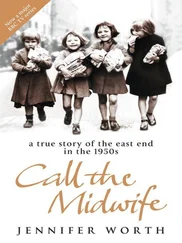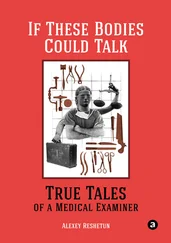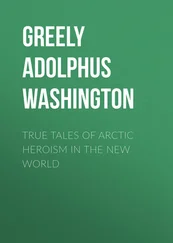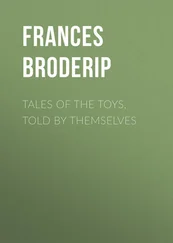Sidney Dickinson - True Tales of the Weird
Здесь есть возможность читать онлайн «Sidney Dickinson - True Tales of the Weird» — ознакомительный отрывок электронной книги совершенно бесплатно, а после прочтения отрывка купить полную версию. В некоторых случаях можно слушать аудио, скачать через торрент в формате fb2 и присутствует краткое содержание. Жанр: foreign_antique, foreign_prose, на английском языке. Описание произведения, (предисловие) а так же отзывы посетителей доступны на портале библиотеки ЛибКат.
- Название:True Tales of the Weird
- Автор:
- Жанр:
- Год:неизвестен
- ISBN:нет данных
- Рейтинг книги:4 / 5. Голосов: 1
-
Избранное:Добавить в избранное
- Отзывы:
-
Ваша оценка:
- 80
- 1
- 2
- 3
- 4
- 5
True Tales of the Weird: краткое содержание, описание и аннотация
Предлагаем к чтению аннотацию, описание, краткое содержание или предисловие (зависит от того, что написал сам автор книги «True Tales of the Weird»). Если вы не нашли необходимую информацию о книге — напишите в комментариях, мы постараемся отыскать её.
True Tales of the Weird — читать онлайн ознакомительный отрывок
Ниже представлен текст книги, разбитый по страницам. Система сохранения места последней прочитанной страницы, позволяет с удобством читать онлайн бесплатно книгу «True Tales of the Weird», без необходимости каждый раз заново искать на чём Вы остановились. Поставьте закладку, и сможете в любой момент перейти на страницу, на которой закончили чтение.
Интервал:
Закладка:
So the flowers were gathered up and placed on the shelf above the fireplace, and during the morning were exhibited to Mrs. Thaxter, who came in for a chat, and who, like my wife, could make nothing of the matter.
At about four o'clock in the afternoon of that day the postman called at the hotel, bearing among his mail several letters for my wife, which were at once sent up to her. Among them was one that was postmarked "Rome" and addressed in my handwriting, and with this she sat down as the first to be read. It contained an account, among other things, of my experiences in Naples and Rome, and in due course mentioned the enclosure of flowers from Capri and from the Tomb of Cecilia Metella. There were, however, no flowers whatever in the letter, although each sheet and the envelope were carefully examined; my wife even shook her skirts and made a search upon the carpet, thinking that the stated enclosure might have fallen out as the letter was opened. Nothing could be found – yet ten hours before the arrival of the letter, flowers exactly such as it described had been found on the centre-table!
Mrs. Thaxter was summoned, and the two ladies marvelled greatly. Among Mrs. Thaxter's friends in the city was a well-known botanist, and she at once suggested that the flowers be offered for his inspection. No time was lost in calling upon him, and the flowers were shown (without, however, the curious facts about them being mentioned), with the request that he state, if it were possible, whence they came. He examined them carefully and then said:
"As to the violets, it is difficult to say where they grew, since these flowers, wherever they may be found in the world (and they are of almost universal occurrence, through cultivation or otherwise) may everywhere be very much alike. Certain peculiarities in these specimens, however, coupled with the scent they still faintly retain and which is characteristic, incline me to the opinion that they came from some part of Southern Europe – perhaps France, but more likely Italy. As to the others, which, as you say, resemble small daisies, they must have come from some point about the Bay of Naples, as I am not aware of their occurrence elsewhere."
"A SPIRIT OF HEALTH"
It is common, and, in the main, a well-founded objection to belief in so-called supernatural manifestations, that they seem in general to subserve no purpose of usefulness or help to us who are still upon this mortal plane, and thus are unworthy of intelligences such as both love and reason suggest our departed friends to be. The mummeries and too-frequent juggleries of dark-séances, and the inconclusive and usually vapid "communications" that are vouchsafed through professional mediums, have done much to confirm this opinion, and the possibility of apparitions, particularly, has been weakened, rather than strengthened, in the minds of intelligent persons by the machinery of cabinets and other appliances which seem to be necessary paraphernalia in "materializing" the spirits of the dead.
That the departed ever reappear in such form as they presented during life I am not prepared to affirm, even in view of many experiences of a nature like that which I am about to relate. In the generality of such cases I am decidedly in agreement with the opinion of the late Wilkie Collins, as set forth in the preceding story – although I should be inclined to extend that opinion far enough to include the admission of the possibility that it was the actual Presence which so worked upon the mind of the percipient as to cause it to project from itself the phantom appearance. This may seem somewhat like a quibble to confirmed believers in apparitions, of whom there are many, and perhaps it is – while those who are impatient of ingenious psychological explanations may find in the following story a confirmation of the conviction which they hold, that the dead may appear in the form in which we knew them, bringing warning and aid to the living.
It is now thirty-one years ago that the wife of my youth, after less than a year of married life, was taken from me by death, leaving to me an infant daughter, in whom all the personal and mental traits of the mother gradually reproduced themselves in a remarkable degree. Some three years later I married again, and the child, who, during that period, had been in the care of her grandparents, at regular intervals, on either side of the house respectively, was taken into the newly-formed home.
A strong affection between the new mother and the little girl was established at once, and their relations soon became more like those of blood than of adoption. The latter, never having known her own mother, had no memory of associations that might have weakened the influence of the new wife, and the step-mother, as the years passed and she had no children, grew to regard the one who had come to her at her marriage as in very truth her own.
I often thought, when seeing those two together, so fond and devoted each to each, that if those we call dead still live and have knowledge of facts in the existence they have left behind, the mother of the child may have felt her natural yearnings satisfied in beholding their mutual affection, and even have found therein the medium to extend from her own sphere the influence of happiness which some may believe they see exercised in the events that this narrative, as well as others in the series, describes.
At the time in which these events occurred, I was traveling in Europe, and my wife and daughter were living in Boston, as stated in the story with which this book opens. In the adjoining town of Brookline there resided a lady of wealth and social prominence, Mrs. John W. Candler, wife of a gentleman who had large railway interests in the South, and who was, moreover, Representative for his district in the Lower House of Congress. Mrs. Candler was a woman of rare beauty and possessed unusual intellectual gifts; she was also a close personal friend of Mrs. Thaxter, whom I have before mentioned and who introduced her to my wife – the acquaintance thus formed developing into an affectionate intimacy that ended only with Mrs. Candler's death, a dozen years ago. As her husband's business interests and legislative duties frequently compelled his absence from home, it was Mrs. Candler's delight to enliven her enforced solitudes by dispensing her large and unostentatious hospitality to her chosen friends – so that it often happened that Mrs. Thaxter, and my wife and child, were guests for considerable periods at her luxurious residence.
One afternoon in mid-winter, Mrs. Candler drove into the city to call upon my wife, and, finding her suffering from a somewhat obstinate cold, urged her, with her usual warmth and heartiness, to return home with her for a couple of days, for the sake of the superior comforts which her house could afford as compared with those of the hotel. My wife demurred to this, chiefly on the ground that, as the weather was very severe, she did not like to take the child with her, since, being rather delicate that winter although not actually ill, she dared not remove her, even temporarily, from the equable temperature of the hotel.
While the matter was being discussed another caller was announced in the person of Miss Mae Harris Anson, a young woman of some eighteen years, daughter of a wealthy family in Minneapolis, who was pursuing a course of study at the New England Conservatory of Music. Miss Anson was very fond of children, and possessed an unusual talent for entertaining them – and thus was a great favorite of my little daughter, who hailed her arrival with rapture. This fact furnished Mrs. Candler with an idea which she immediately advanced in the form of a suggestion that Miss Anson might be willing to care for the child during my wife's absence. To this proposal Miss Anson at once assented, saying, in her lively way, that, as her school was then in recess for a few days, she would like nothing better than to exchange her boarding-house for a hotel for a while, and in consideration thereof to act as nursemaid for such time as might be required of her. It was finally agreed, therefore, that Miss Anson should come to the hotel the next morning, prepared for a two or three days' stay; – this she did, and early in the afternoon Mrs. Candler arrived in her sleigh, and with my wife was driven to her home.
Читать дальшеИнтервал:
Закладка:
Похожие книги на «True Tales of the Weird»
Представляем Вашему вниманию похожие книги на «True Tales of the Weird» списком для выбора. Мы отобрали схожую по названию и смыслу литературу в надежде предоставить читателям больше вариантов отыскать новые, интересные, ещё непрочитанные произведения.
Обсуждение, отзывы о книге «True Tales of the Weird» и просто собственные мнения читателей. Оставьте ваши комментарии, напишите, что Вы думаете о произведении, его смысле или главных героях. Укажите что конкретно понравилось, а что нет, и почему Вы так считаете.












